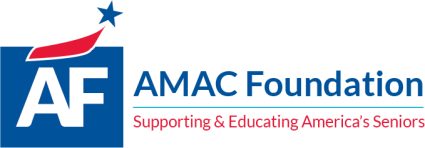Mediare Part A – Hospital Insurance
Medicare Part A is also called “Hospital Insurance” (HI) because it covers hospitalization needs, such as hospital inpatient care, skilled nursing facilities, hospice care, and some home health care (Medicare program, 2019). However, this coverage is limited and typically, beneficiaries must meet certain conditions in order to receive those benefits. For example, home health care is limited. The beneficiary must be recovering from an acute illness, be homebound, or the home health must be ordered by a doctor. In addition, it only covers skilled, intermittent care, which means less than seven days per week and less than eight hours per day. Furthermore, a home health aide (a person without a nursing license) is only covered if he/she is working in addition to a nurse or therapist and is not the sole caregiver for home health. Custodial care in a nursing home also has limitations. It is not covered if the beneficiary does not have an acute condition; therefore, someone with Alzheimer’s or other dementia does not have custodial care coverage through Original Medicare; this would only be covered through a supplemental plan (Boomer Benefits, 2019). Another example of a service that is not covered under Part A that can easily be misunderstood is outpatient hospital care. For example, if you go to the Emergency Room and are held there overnight for observation, it may seem like you were admitted as an inpatient because you stayed overnight; however this is actually an outpatient service that is not covered by Part A .
You may get a Medicare Outpatient Observation Notice (MOON) that lets you know you’re an outpatient in a hospital or critical access hospital. You must get this notice if you’re getting outpatient observation services for more than 24 hours. The MOON will tell you why you’re an outpatient getting observation services, instead of an inpatient. It will also let you know how this may affect what you pay while in the hospital, and for care you get after leaving the hospital.(medicare.gov, 2019).
Medicare Part A is the only aspect of Medicare that is partially financed by payroll taxes, which is why most people receive “premium-free Part A”. For most people, the Medicare payroll tax is 2.9% of earnings, where the employee pays 1.45% and the employer pays 1.45%. Therefore, if you are self-employed, you pay the entire 2.9%. These taxes are deposited into the Hospital Insurance (HI) Trust Fund (Learn about, 2012). As of 2013, because of the Affordable Care Act, this tax is higher for individuals with a larger income. For individuals who earn more than $200,000 per year and couples filing jointly who earn more than $250,000 per year, the Medicare tax rate increases by 0.9% to 2.35%. The employer does not match the additional imposed tax and this is also deposited into the HI Trust Fund (Kaiser Family Foundation [KFF], 2013).
Enrollees age 65 and older who have fewer than 40 quarters of coverage, and certain persons with disabilities, pay a monthly premium in order to voluntarily enroll in Medicare Part A. Individuals who had at least 30 quarters of coverage, or were married to someone with at least 30 quarters of coverage, may buy into Part A at a reduced monthly premium rate, which will be $311 in 2026, a $26 increase from 2025. Certain uninsured aged individuals who have fewer than 30 quarters of coverage, and certain individuals with disabilities who have exhausted other entitlements, will pay the full premium, which will be $565 a month in 2026, a $47 increase from 2025. If you are eligible for free Part A Original Medicare if:
- You already get retirement benefits from Social Security or the Railroad Retirement Board.
- You’re eligible to get Social Security or Railroad benefits but haven’t filed for them yet.
- You or your spouse had Medicare-covered government employment.
If you’re under 65, you can get premium-free Part A if:
- You got Social Security or Railroad Retirement Board disability benefits for 24 months.
- You have End-Stage Renal Disease (ESRD) and meet certain requirements.
The Medicare Part A inpatient hospital deductible that beneficiaries pay if admitted to the hospital will be $1,736 in 2026, an increase of $60 from $1,676 in 2025. Part A inpatient hospital deductible covers beneficiaries’ share of costs for the first 60 days of Medicare-covered inpatient hospital care in a benefit period. In 2026, beneficiaries must pay a coinsurance amount of $434 per day for the 61st through 90th day of a hospitalization ($419 in 2025) in a benefit period and $868 per day for lifetime reserve days ($838 in 2025). For beneficiaries in skilled nursing facilities, the daily coinsurance for days 21 through 100 of extended care services in a benefit period will be $217.00 in 2026 ($209.50 in 2025).
|
Part A Deductible and Coinsurance Amounts for Calendar Years 2025 and 2026 |
||
|---|---|---|
|
2025 |
2026 |
|
| Inpatient hospital deductible |
$1,676 |
$1,736 |
| Daily hospital coinsurance for 61st-90th day |
$419 |
$434 |
| Daily hospital coinsurance for lifetime reserve days |
$838 |
$868 |
| Skilled nursing facility daily coinsurance (days 21-100) |
$209.50 |
$217 |
